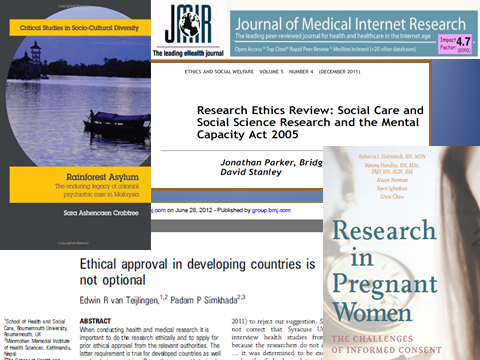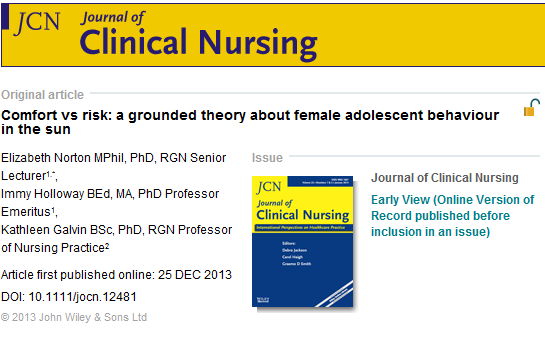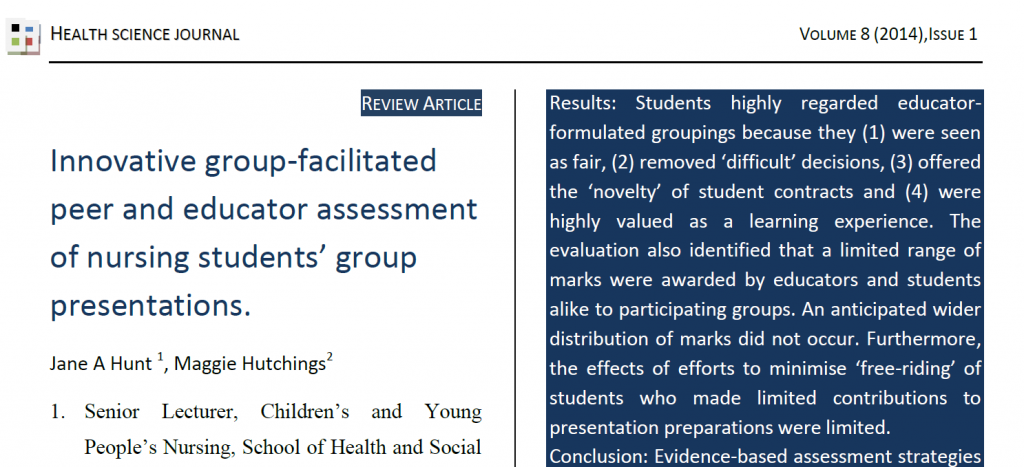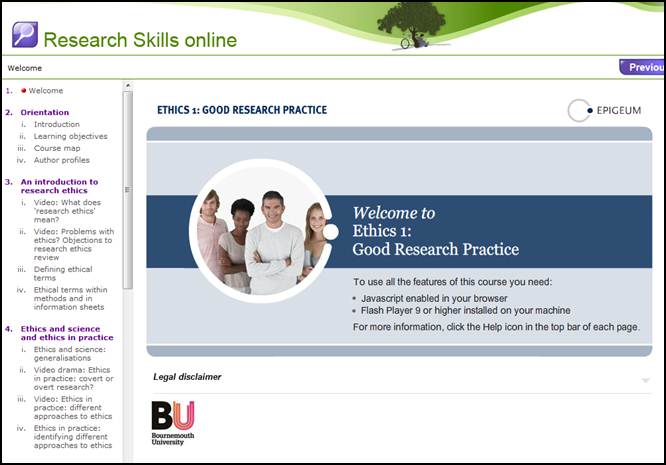
Collage of research ethics contributions
Academics based in HSC have experience in a wide-range of research. In the process of reflecting on all aspects of the research process several members of HSC have published about ethical issues that they have had to address in their own research. This BU Blog highlights some of these key HCS papers which may help fellow academics and students across the globe address similar ethical questions. HSC has a history of publishing on research ethics, Professor Emerita Immy Holloway wrote about the researcher who may have a dual role, or even conflicting role, as researcher and health care professional (1). More recently, several midwifery researchers in the Centre for Midwifery, Maternal & Perinatal Health wrote about the issues facing practitioners doing research in the field where they work, especially concerning the similarities and differences between professional ethics and research ethics (2-3). Negotiating ethical paths cleaved by competing concerns between protecting research participants and over-managing the ethical process is tricky.
In her book Rainforest Asylum: The enduring legacy of colonial psychiatric care in Malaysia Dr. Ashencaen Crabtree in the Centre for Social Work, Sociology & Social Policy, addresses the problematic issue of gate-keepers in research together with the ethics of critical observation of abuse (potential or actual), as well as the ethics of advocating on behalf of research participants (4).
The fear that the ethical application process in the UK is becoming more and more cumbersome and bureaucratic has been widely recognised as highlighted by Prof. van Teijlingen and colleagues (5-6).
Research ethics review processes are also considered in terms of access to participants regarded as ‘vulnerable’ in a recently published paper by Dr. Ashencaen Crabtree (7) of ethnographers working in health settings who are seeking to understand the context of care and patient/service user experiences. She concludes that paternalistic control of participation on the grounds of ethical protection of vulnerable people seriously disenfranchises potential participants in preventing them from being able to share their relevant, lived experiences as recipients of service provision.
Prof. van Teijlingen and BU Visiting Fellow Dr. Padam Simkhada highlighted that the social, cultural and economic contexts in which research is conducted often differ between developing and developed countries. However they stress that researchers need to apply for research ethics approval to the relevant local authority, if national legislation requires one to do so (8).
A new and challenging area of research is the use of discussion boards as a source of research data. In their paper Dr. Bond and BU colleagues discuss both practical and ethical dilemmas that arise in using such data (9). In earlier research, Prof. Parker of the Centre for Social Work, Sociology & Social Policy, highlighted some of the benefits and dangers of using email and the Internet for research as the potential for electronic media continues its rapid growth (10).
Obtaining informed consent is something that all researchers need to consider. However, in some research situations obtaining consent can be particularly challenging. Prof. Hundley and colleagues discuss the ethical challenges involved in conducting a cluster randomised controlled trial, where consent needs to be considered at a number of levels (11). In a second paper issues of consent during pregnancy, where there is the potential for harm to two participants, are considered (12).
In research into the implications of the Mental Capacity Act 2005 for social research, Prof. Parker explored the contested meanings and difficulties associated with informed consent in social research, highlighting some of the challenges raised by an almost unquestioned acceptance of biomedical research ethics in social research and questioning whether potential ‘harm’ is different in this context (13, 14). This research has led to further explorations of the potential for ethical covert research by Prof. Parker and Dr. Ashencaen Crabtree.
The way forward
There a plenty of challenges to research ethics in both the health and social care sectors. Ethical considerations relate to technological developments such conducting research over the Internet or the analysis of tweets. HSC staff will continue to publish on a range of moral dilemma as well as practical issues related to research ethics. Moreover, academic from the two centres are planning a Masterclass on research ethics to be held in early 2014.
References
- Holloway, I., Wheeler, S. (1995) Ethical Issues in Qualitative Nursing Research, Nursing Ethics 2: 223-232. Web address: http://nej.sagepub.com/content/2/3/223.full.pdf+html
- Ryan, K., Brown, B., Wilkins, C., Taylor, A., Arnold, R., Angell, C., van Teijlingen, E. (2011) Which hat am I wearing today? Practicing midwives doing research, Evidence-Based Midwifery 9(1): 4-8.
- van Teijlingen, E.R., Cheyne, H.L. (2004) Ethics in midwifery research, RCM Midwives Journal 7 (5): 208-10.
- Ashencaen Crabtree, S. (2012) Rainforest Asylum: The enduring legacy of colonial psychiatric care in Malaysia, London: Whiting & Birch.
- van Teijlingen, E., Douglas, F., Torrance, N. (2008) Clinical governance and research ethics as barriers to UK low-risk population-based health research? BMC Public Health 8(396) Web address: www.biomedcentral.com/content/pdf/1471-2458-8-396.pdf
- van Teijlingen, E. (2006) Reply to Robert Dingwall’s Plenary ‘Confronting the Anti-Democrats: The unethical Nature of Ethical Regulation in Social Science, MSo (Medical Sociology online) 1: 59-60 Web address: www.medicalsociologyonline.org/archives/issue1/pdf/reply_rob.pdf
- Ashencaen Crabtree, S. (2013) Research ethics approval processes and the moral enterprise of ethnography. Ethics & Social Welfare. Advance Access: DOI:10.1080/17496535.2012.703683
- van Teijlingen E.R., Simkhada, P.P. (2012) Ethical approval in developing countries is not optional, Journal of Medical Ethics 38 :428-430.
- Bond, C.S, Ahmed, O.H., Hind, M, Thomas, B., Hewitt-Taylor, J. (2013) The Conceptual and Practical Ethical Dilemmas of Using Health Discussion Board Posts as Research Data, Journal of Medical Internet Research 15(6):e112) Web address: http://www.jmir.org/2013/6/e112/
- Parker, J. (2008) Email, ethics and data collection in social work research: some reflections from a research project, Evidence & Policy: A Journal of Research, Debate & Practice, 4 (1): 75-83.
- Hundley, V, Cheyne, HC, Bland, JM, Styles, M, Barnett, CA.. (2010) So you want to conduct a cluster randomised controlled trial? Lessons from a national cluster trial of early labour, Journal of Evaluation in Clinical Practice 16: 632-638
- Helmreich, R.J., Hundley, V., Norman, A., Ighedosa, J., Chow, E. (2007) Research in pregnant women: the challenges of informed consent, Nursing for Women’s Health 11(6): 576-585.
- Parker, J., Penhale, B., Stanley, D., 2010. Problem or safeguard? Research ethics review in social care research and the Mental Capacity Act 2005. Social Care & Neurodisability, 1 (2): 22-32.
- Parker, J., Penhale, B., Stanley, D. (2011) Research ethics review: social care and social science research and the Mental Capacity Act 2005, Ethics & Social Welfare, 5(4): 380-400.
Vanora Hundley, Sara Ashencaen Crabtree, Jonathan Parker & Edwin van Teijlingen










 The University Research & Knowledge Exchange Committee (URKEC) recently approved the implementation plan of a mandatory research ethics e-module training course. The research ethics e-module is vital to ensure all academic staff and PGRs at BU are provided with training in research ethics. This will ensure all members of staff who conduct their own research and supervise students are proficient in basic research ethics principles.
The University Research & Knowledge Exchange Committee (URKEC) recently approved the implementation plan of a mandatory research ethics e-module training course. The research ethics e-module is vital to ensure all academic staff and PGRs at BU are provided with training in research ethics. This will ensure all members of staff who conduct their own research and supervise students are proficient in basic research ethics principles.












 Second NIHR MIHERC meeting in Bournemouth this week
Second NIHR MIHERC meeting in Bournemouth this week Dr. Ashraf cited on ‘Modest Fashion’ in The Guardian
Dr. Ashraf cited on ‘Modest Fashion’ in The Guardian NIHR-funded research launches website
NIHR-funded research launches website MSCA Postdoctoral Fellowships 2025 Call
MSCA Postdoctoral Fellowships 2025 Call ERC Advanced Grant 2025 Webinar
ERC Advanced Grant 2025 Webinar Horizon Europe Work Programme 2025 Published
Horizon Europe Work Programme 2025 Published Horizon Europe 2025 Work Programme pre-Published
Horizon Europe 2025 Work Programme pre-Published Update on UKRO services
Update on UKRO services European research project exploring use of ‘virtual twins’ to better manage metabolic associated fatty liver disease
European research project exploring use of ‘virtual twins’ to better manage metabolic associated fatty liver disease